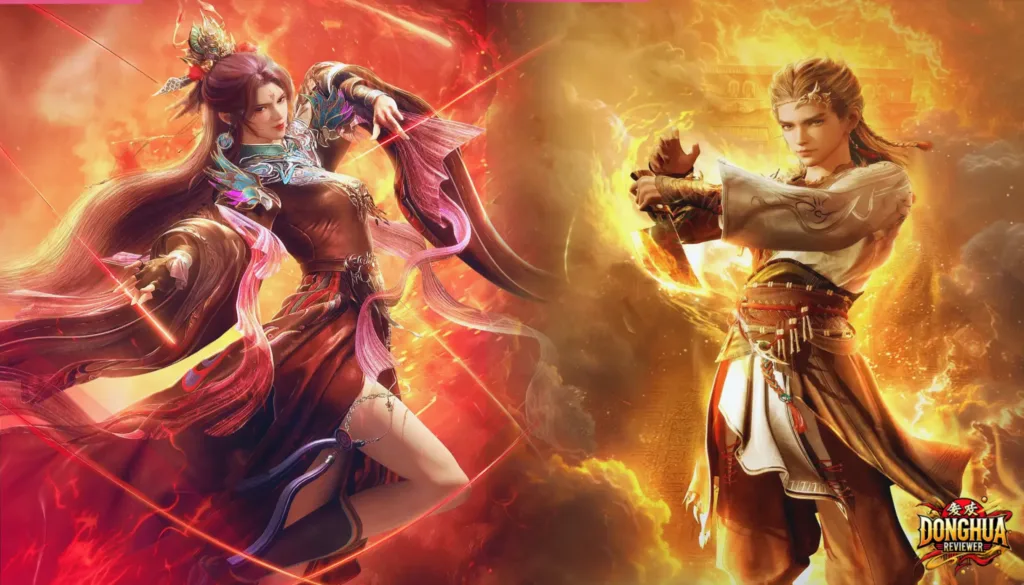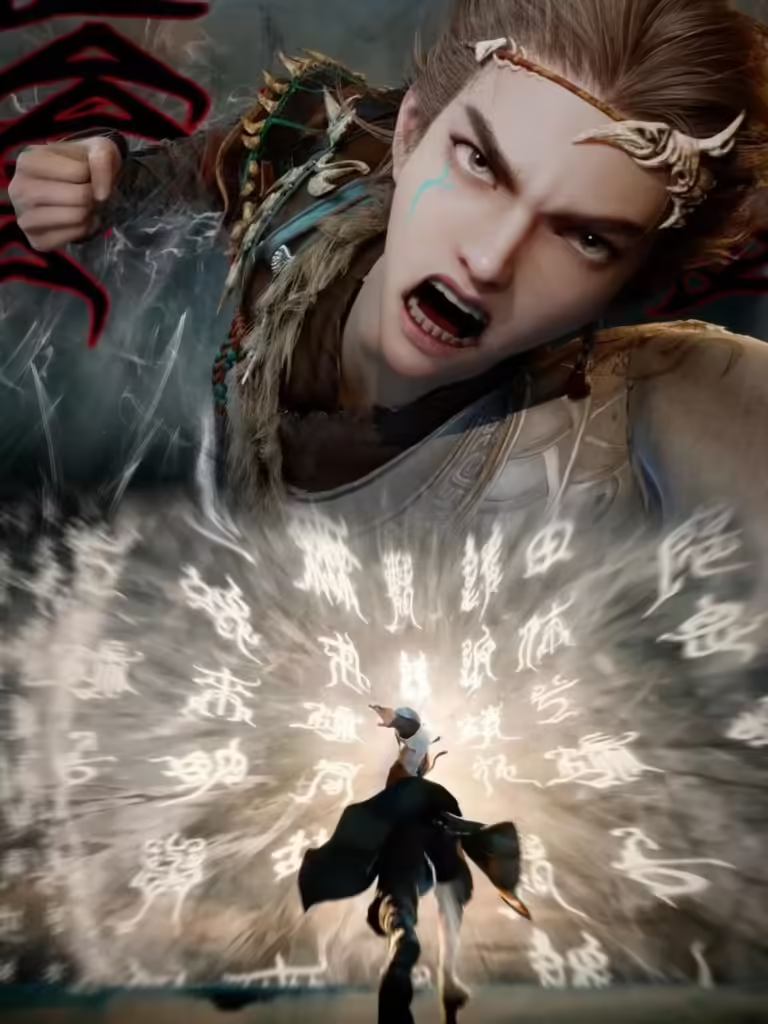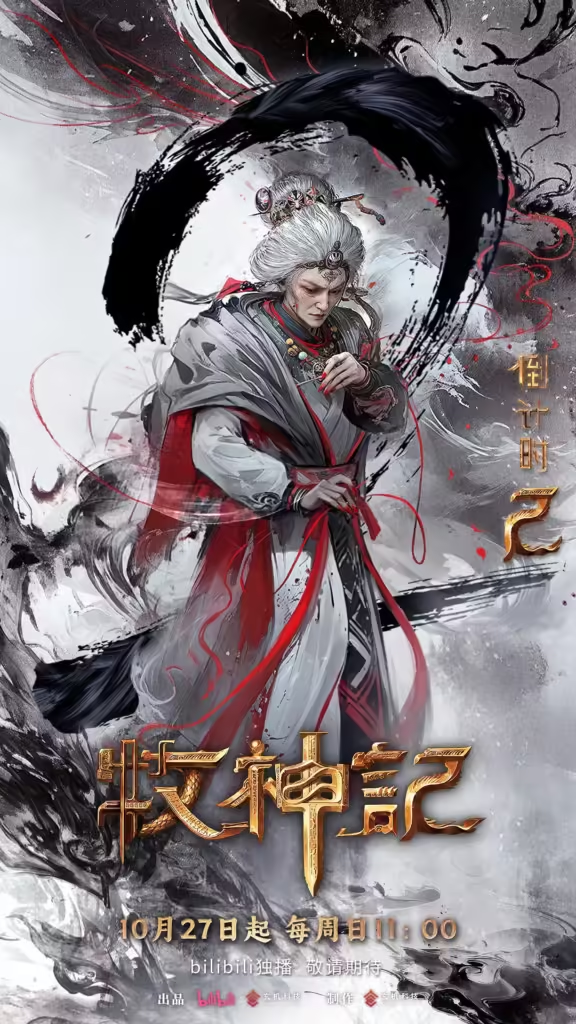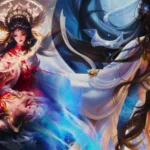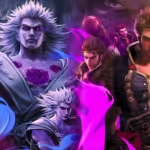Tales of Herding Gods (牧神记) is a highly acclaimed Chinese fantasy novel by the author 宅猪 (Zhai Zhu). Initially serialized on Qidian Chinese Network starting June 20, 2017, and completed on August 31, 2019, it has since been adapted into comics, and a highly anticipated donghua is set to release on October 27, 2024. This comprehensive essay delves into the novel’s complex universe, major characters, philosophical underpinnings, and how the donghua adaptation is bringing its story to life, particularly focusing on the portrayal of one of its central figures, Si Youyou.
Table of contents
- Introduction: A Blend of Traditional Fantasy and Modern Storytelling
- The Universe of Tales of Herding Gods : A Cosmic Saga Across Multiple Epochs
- Key Characters and Their Roles
- Philosophical Themes: The Cycle of Life, Death, and Rebirth
- Social and Cultural Commentary: Bridging Tradition and Modernity
- Si Youyou’s Journey: From Saintess to Fugitive
- Challenges of Adapting Tales of Herding Gods to Donghua
- The Broader Impact: Themes of Resistance, Identity, and Change
- Conclusion: A Timeless Tale of Cosmic Struggles and Human Resilience
Introduction: A Blend of Traditional Fantasy and Modern Storytelling
Tales of Herding Gods seamlessly blends traditional Chinese fantasy elements with modern narrative techniques. The novel is set in a vast universe where gods, demons, and mortals coexist, connected through intricate cosmological cycles. The protagonist, Qin Mu, embarks on a journey of self-discovery, confronting ancient powers and uncovering cosmic secrets. Praised for its expansive world-building and rich character development, the novel integrates classic wuxia (martial arts) and xianxia (immortal cultivation) themes with philosophical discussions on existence, power, and identity.
The narrative framework draws inspiration from scientific theories like Roger Penrose’s “Conformal Cyclic Cosmology,“ suggesting that the universe undergoes endless cycles of creation and destruction. This cyclical nature enables characters to traverse time, affecting past and future events while blurring the lines between life and death. This dynamic setting creates a rich tapestry of interwoven stories that delve into deep themes, transforming the novel into a philosophical exploration of fate, change, and the struggle for identity.
The Universe of Tales of Herding Gods: A Cosmic Saga Across Multiple Epochs
The setting of Tales of Herding Gods spans across multiple cosmic epochs, from the First Universe Epoch to the Seventeenth. Each cycle represents a distinct era with its own gods, civilizations, and conflicts. The narrative primarily focuses on the Seventeenth Universe Epoch, where the story of Qin Mu unfolds, but frequently dips into the past to reveal the fates and legacies of characters from earlier epochs.
The concept of a cyclical universe allows the author to explore themes of rebirth, destiny, and the eternal struggle between chaos and order. Characters find themselves trapped in repeating patterns, with the universe’s cyclical nature implying that every end is merely a prelude to a new beginning. This structure creates a world where beings from past epochs can be reborn, influencing future events or attempting to salvage remnants of their previous lives.

Key Characters and Their Roles
Qin Mu: The Shepherd of a New Age
Qin Mu, the protagonist, is central to the narrative. Born with divine power, his journey is one of growth and self-discovery. Raised in an isolated village by elders with mysterious pasts, Qin Mu learns to navigate a world filled with cosmic conflicts, divine politics, and existential challenges. His strength lies not only in his martial prowess but also in his empathy and ability to unite people from diverse backgrounds and beliefs.
Qin Mu represents the desire for justice, freedom, and progress. He is driven by a disdain for societal inequalities and strives to dismantle oppressive systems, advocating for a more just, inclusive world. Through his journey, Tales of Herding Gods reflects modern themes of social justice, freedom, and reform, positioning him as a hero who challenges the old order to create a better future.
The Master of Miluo Palace: The Eternal Seeker
Spanning across multiple universe epochs, the Master of Miluo Palace embodies the quest for salvation and refuge. His ambition to create a sanctuary that could endure cosmic cycles, preserving knowledge and culture, reflects his struggle against the natural order of creation and destruction. His repeated failures serve as a poignant commentary on the limits of control and the inevitability of cosmic forces, making his journey a meditation on ambition, hope, and acceptance of limitations.
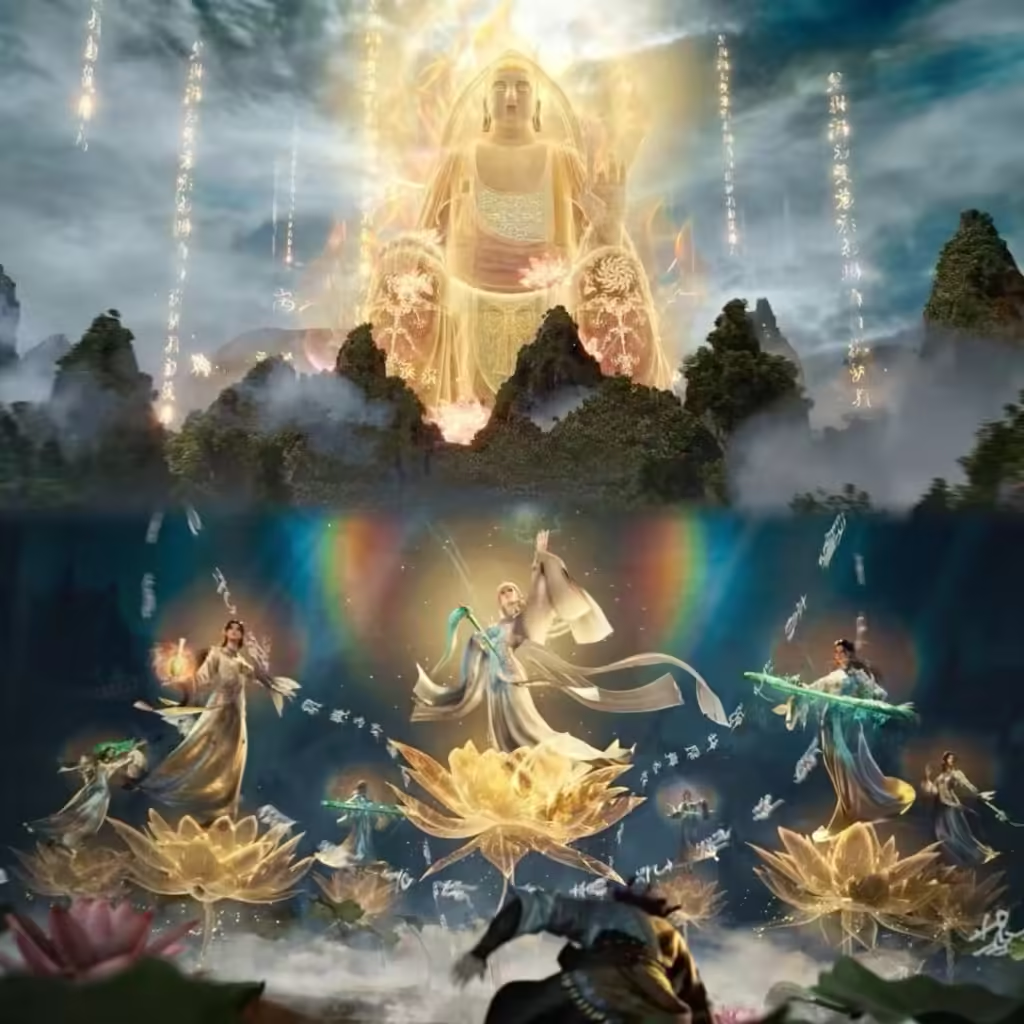
Philosophical Themes: The Cycle of Life, Death, and Rebirth
A core theme in Tales of Herding Gods is the cyclical nature of existence, echoing Taoist and Buddhist philosophies. The endless cycles of the universe, along with the fluid transitions between life and death, mirror the Eastern metaphysical concepts of reincarnation and eternal return. The novel suggests that death is not the end but a transformation, a passage through which the spirit continues its journey.
The interplay between chaos and order, creation and destruction, accentuates this theme. The universe is a dynamic entity, constantly evolving, collapsing, and reforming. This dynamic creates a world where ancient beings can return, influencing future events, and where every action is part of a larger, predestined pattern that no single character can fully control.
Social and Cultural Commentary: Bridging Tradition and Modernity
Beyond its cosmic battles and metaphysical explorations, Tales of Herding Gods offers a reflection on societal issues. Throughout the novel, there is a recurring theme of bridging the gap between the old and the new. Ancient gods and systems of power represent the rigidity of tradition, while characters like Qin Mu and the denizens of later epochs strive for progress and reform.
This struggle is particularly evident during the Seventeenth Universe’s Red Dawn era, where ancient powers seek to reassert control while newer, more democratic systems emerge to challenge them. The narrative reveals a society that must reconcile its glorious, yet oppressive past with a hopeful, yet uncertain future.
The treatment of characters like the Demigods and post-celestial beings reflects class struggles, fear of the unknown, and the tension between privilege and meritocracy. Qin Mu’s desire for a more inclusive, egalitarian world serves as a critique of entrenched social hierarchies, while the allegiances and betrayals among gods, mortals, and cosmic entities speak to the complexities of power dynamics.
Si Youyou’s Journey: From Saintess to Fugitive
One of the most fascinating character arcs in Tales of Herding Gods is that of Si Youyou. Initially introduced as the Saintess of the Heaven Demon Sect, Si Youyou is a figure of grace, beauty, and intelligence. However, her life takes a drastic turn when her master, Li Tianxing, becomes obsessed with her. Overcome by his desires, he divorces his wife and attempts to forcefully marry Si Youyou, using his authority to pressure her into submission.
Despite the pressure, Si Youyou demonstrates her strength and cunning by devising a plan to escape. During their wedding night, she outsmarts Li Tianxing, incapacitating him and fleeing the sect with the Heaven Demon Sect’s sacred texts. Her journey from this point is marked by a life of deception and survival, as she disguises herself as an old, hunchbacked woman and hides in the Great Ruins, a mysterious and desolate area where she hopes to evade capture.
Si Youyou’s transformation into an elderly woman is not just a physical disguise but also a symbolic representation of her hiding her true self—her beauty, power, and identity—behind a mask of humility. Her story is one of resilience, adaptation, and the struggle for freedom, making her a compelling figure in the Tales of Herding Gods universe.
Si Youyou in the Donghua: A Visual Representation of Beauty and Mystery
Particularly with the recent release of a character trailer focusing on Si Youyou. The trailer showcases her striking beauty, with long pink hair and a colorful dress that exudes elegance and sensuality. Her portrayal in the donghua has captivated fans, who are eager to see how her complex character will be brought to life on screen.
Si Youyou is seen in the trailer with a confident, seductive demeanor, accentuated by her graceful movements and alluring gaze. Her visual design emphasizes her maturity and sophistication, making her a standout character in the donghua’s lineup. The trailer hints at her duality—an enigmatic woman with a mysterious past and a powerful presence. This has led to heightened anticipation for her role in the donghua, as fans are eager to see how her backstory, motivations, and transformation will be portrayed.
Challenges of Adapting Tales of Herding Gods to Donghua
Adapting Tales of Herding Gods to a donghua format presents challenges, particularly with complex characters like Si Youyou. In the original novel, much of her development is conveyed through introspection, inner dialogues, and intricate plotlines that unfold over several chapters. Translating these nuances into a visual medium requires careful planning to ensure that her character’s depth is not lost.
The donghua must navigate Si Youyou’s dual identity—the beautiful, rebellious saintess and the disguised, old woman—to maintain the depth of her character. Creative storytelling techniques, such as using different visual styles or color schemes, could effectively highlight her transformation and the contrasting aspects of her persona. The donghua’s success will depend on its ability to balance visual storytelling with the intricate narrative elements of the novel, ensuring that characters like Si Youyou retain their complexity.
The Broader Impact: Themes of Resistance, Identity, and Change
Si Youyou’s character arc mirrors the broader themes of Tales of Herding Gods. Her rebellion against Li Tianxing and her subsequent escape from the Heaven Demon Sect reflect the larger struggle against oppressive forces that permeate the universe. Just as Si Youyou seeks to escape control, Qin Mu and other characters battle against ancient powers that seek to dominate or destroy. These narratives of resistance are central to the novel’s appeal, resonating with audiences who see in them reflections of real-world struggles for freedom and autonomy.
Through characters like Si Youyou, Tales of Herding Gods explores themes of autonomy, identity, and the quest for self-determination. Her story emphasizes the importance of resilience, adaptability, and the strength to forge one’s own path, even in the face of overwhelming odds. It is this blend of personal and cosmic struggles that makes Tales of Herding Gods a compelling narrative, rich with layers of meaning and interpretation.
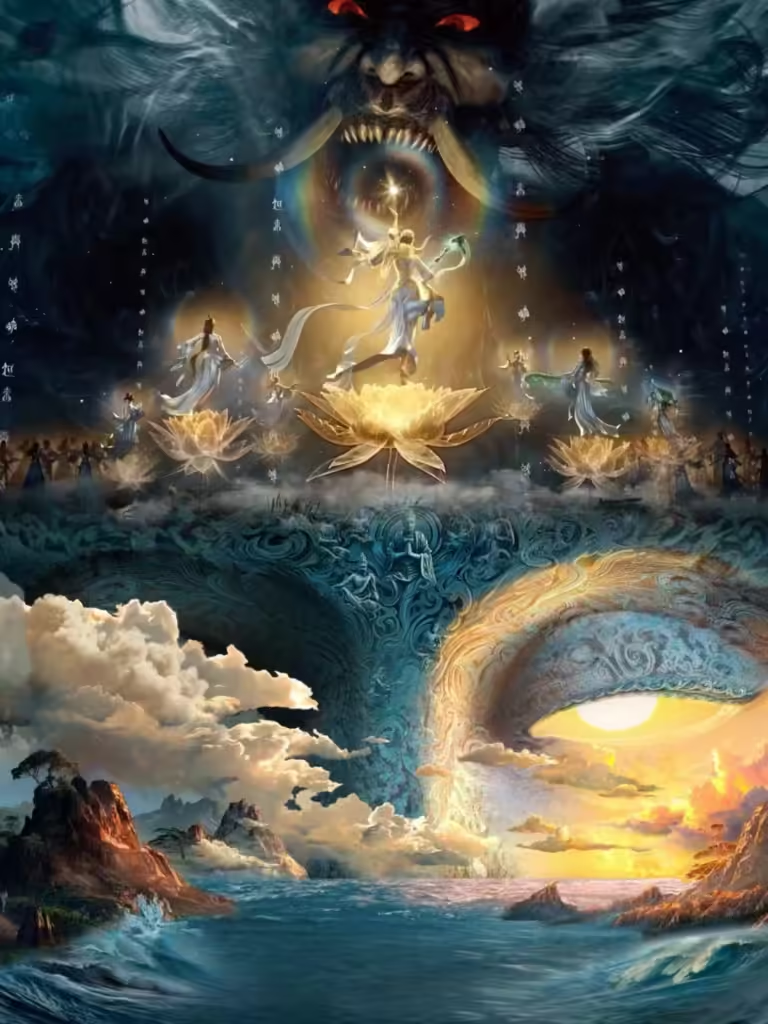
Conclusion: A Timeless Tale of Cosmic Struggles and Human Resilience
Tales of Herding Gods is more than just a fantasy novel; it is a multifaceted exploration of timeless themes through the lens of modern sensibilities. It raises profound questions about the nature of power, the cycle of life and rebirth, and the eternal struggle between chaos and order. Characters like Qin Mu and Si Youyou are not merely heroes but representations of broader philosophical and societal issues, making the novel a mirror to real-world concerns about freedom, justice, and identity.
The upcoming donghua adaptation has the potential to bring these themes to a wider audience, translating the novel’s rich narrative into a visual format that can capture its essence. Si Youyou’s portrayal, in particular, has been a focal point for fans, who are eager to see how her character will be adapted for the screen. As Tales of Herding Gods continues to expand its reach through various media, it solidifies its place as a modern epic that will resonate with audiences for years to come.
By blending traditional Chinese culture with modern storytelling, Tales of Herding Gods bridges the gap between the past and the present, creating a universe that is both fantastical and deeply reflective of real-world struggles. It is this timeless quality that ensures Tales of Herding Gods will remain a beloved work, continuing to inspire and captivate readers and viewers around the world.
anime analysis Battle Through the Heavens Business Cang Yuan Tu Changsheng Jie Chen Dong Chinese animation Chinese anime Chinese fantasy cinema cultivation donghua Douluo Dalu Fantasy Anime health Hua Jianghu Zhi Bu Liang Ren i eat tomatoes Jian Lai New Donghua Night Without Bounds | Chapter 1: Eternal Night Night Without Bounds 夜无疆 Painting Rivers and Lakes Perfect World Renegade Immortal Shrouding the Heavens 遮天 Soul Land sport Swallowed Star Sword Coming Tang Jia San Shao The Demon Hunter Throne of Seal Tomb of Fallen Gods Season 2 travel Unsheathed Webnovel Wang Lin world Xian Ni Xianxia Ye Wu Jiang 仙逆 剑来 斗罗大陆 沧元图动画 画江湖之不良人

